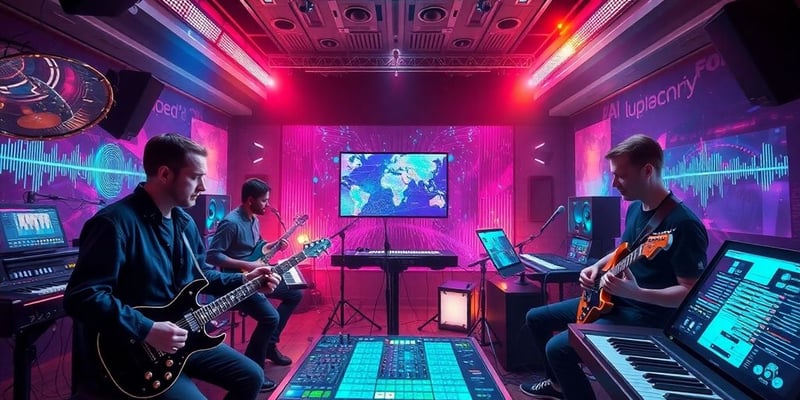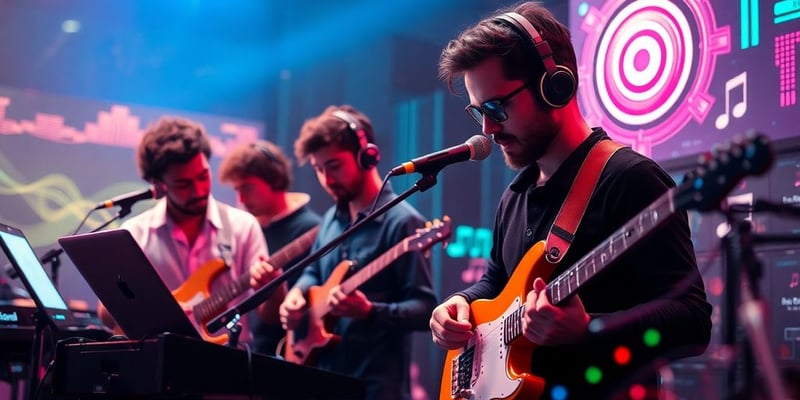
Discover the Future of Music: How AI Singing is Revolutionizing the Way We Create and Experience Sound
Save 15%

AI singing is changing the way we think about music. It's not just a tool; it's a whole new way to create and enjoy sound. From the early days of digital music to today's AI-driven compositions, technology has always played a big role in music. Now, AI singing is taking things to the next level, offering new possibilities for artists and listeners alike.
Key Takeaways
- AI is transforming music creation, making it more accessible and innovative.
- AI vocals offer artists new ways to experiment with sound.
- The use of AI in live performances is opening up exciting possibilities.
- There are ethical and legal questions about AI's role in music.
- AI is reshaping music marketing and audience engagement.
The Evolution of AI Singing in Music Production
From Synthesizers to AI Vocals
Back in the day, synthesizers were the cutting-edge tech that let musicians play around with sounds that felt out of this world. It was like opening a new door to creativity, where artists could explore sounds that were once just a dream. Fast forward to today, and we've got AI vocal plugins that are shaking up the music scene. These tools are not just about making music; they're about creating a whole new experience, letting artists dive into a sea of endless possibilities.
The Role of Machine Learning in Music
Machine learning is like that friend who always knows what you want before you even say it. In music, it's helping predict trends and even compose tunes that hit the right notes. It's not about replacing musicians but giving them a new partner in crime. With AI, artists can experiment more, pushing the boundaries of what's possible and creating melodies that resonate with listeners on a deeper level.
AI as a Creative Partner
Think of AI as a bandmate who’s always ready to jam. It's not just about crunching numbers or analyzing data; it's about collaborating to make something magical. AI can suggest new chord progressions, help with songwriting, or even generate unique sounds that fit perfectly into a track. It's like having a co-writer who never runs out of ideas, always ready to take the music to places it’s never been before.
AI in music is like finding a new instrument that plays along with you, always in tune with your creative vision.
Understanding AI Vocals and Their Impact
What Are AI Vocals?
AI vocals are crafted using advanced algorithms that can generate or modify singing voices to sound human-like. This means you can get vocals that capture emotions, tones, and styles, all thanks to AI. It's pretty wild how this tech can make voices that sound almost too real or even a bit otherworldly. Musicians now have a whole new playground to experiment with vocal qualities and styles without being limited by human vocal cords.
How AI Vocals Are Transforming Music
AI vocals are shaking things up in music production. They're like a game-changer, opening doors to a bunch of vocal styles and capabilities. Musicians and producers can now explore creative paths that were once blocked because of money or logistics. This tech is pushing the boundaries of what's possible in music, encouraging creativity and experimentation like never before.
- Accessibility: AI vocals make it easier for anyone to experiment with different vocal styles.
- Cost-Effective: No need to hire expensive vocalists or book studio time.
- Endless Creativity: Artists can mix and match vocal styles, creating something truly unique.
The Science Behind AI Voice Synthesis
The magic of AI vocals lies in the complex algorithms that power them. These algorithms break down the human voice into parts that can be digitally recreated. It's all about deep learning, where AI systems train on massive datasets of vocal recordings to understand and mimic human-like voice traits. This tech is not just about technical feats; it's a new tool for creativity in music production.
AI voice synthesis is not just about making something sound good; it's about opening up new creative horizons in music. This technology is a bridge to a future where human and machine collaboration in music is seamless.
AI-Powered Music Creation: A New Era

AI Tools for Composing and Arranging
In today's music scene, AI is transforming the music industry by making composition and arrangement more accessible than ever. Gone are the days when you needed years of training to compose a symphony or even a catchy tune. With AI tools like Amper Music and AIVA, anyone—from seasoned pros to absolute beginners—can create complex compositions in minutes. These platforms sift through huge databases of music to generate melodies, harmonies, and rhythms. Whether it’s a movie score or a jingle for an ad, AI can tailor high-quality tracks to specific moods or genres.
The Rise of the Digital Composer
AI is changing the game for composers. It's not just about replacing traditional musicians; it's about enhancing their creativity. AI-generated ideas can be a springboard for artists, saving them time and opening up new possibilities. Imagine having a digital partner that helps you brainstorm and refine your musical ideas without the need for expensive studio time.
AI in Songwriting and Composition
In songwriting and composition, AI is like a co-writer that never sleeps. Tools like Amper Music's Songwriter and AIVA can help musicians generate new melodies, chord progressions, and even lyrics. AI-powered arrangement tools, such as BandLab's Band-in-a-Box, assist in crafting and refining song structures. This tech isn't just a novelty; it's a powerful tool that democratizes music creation, allowing more people to express themselves musically.
The blend of AI and music creation is opening doors to a future where anyone can be a composer, breaking down barriers that once made music creation exclusive. As AI continues to evolve, who knows what new genres and styles will emerge from this harmonious techno-human collaboration?
AI in Live Performances and Virtual Reality
Virtual Artists and Holographic Concerts
AI is shaking up the live music scene, and it's doing it in style. Virtual artists, like the famous Hatsune Miku, are taking the stage, powered by vocal synthesizers and holographic tech. These virtual stars are selling out concerts globally, making waves in the industry. It's a unique blend of tech and art, where audiences get to experience something completely different. Imagine a concert where the star isn't even human, yet the energy and excitement are just as real.
Enhancing Live Music with AI
AI isn't just about virtual stars; it's also making real-time performances better. Picture this: you're at a concert, and the sound is just perfect, no matter where you stand. That's AI at work, using tools like Smart:EQ to adjust audio based on the venue's acoustics. And it's not just sound; AI is also jazzing up visuals, making each concert a feast for the eyes. With AI, every performance becomes a unique experience, tailored to the audience right there and then.
The Future of VR Concerts
Looking ahead, AI-driven virtual reality concerts are set to change the game. These concerts let fans enjoy live shows from the comfort of their homes. No more fighting for a good spot or dealing with crowds. Instead, you get an immersive experience, almost like being there in person. VR and AI together are making concerts more accessible and personalized, offering fans a new way to enjoy their favorite artists. It's a glimpse into the future of entertainment, where technology and creativity collide to create something truly special.
The Ethical and Legal Implications of AI Singing
Copyright and Ownership Challenges
AI in music is shaking things up, especially when it comes to who owns what. The creation of music using AI brings up questions about copyright and who should get credit. With AI models frequently utilizing unlicensed music, there's a real risk of copyright challenges. Artists like Billie Eilish and Pearl Jam are leading the charge in these legal discussions. As AI becomes more common, the music industry has to figure out how to protect artists' rights while still allowing room for innovation.
Authenticity and Emotional Depth
One big question is whether AI-created music can really touch listeners the way human-made music does. Some say that music made by algorithms lacks the emotional depth of songs written by people. This raises concerns about authenticity and whether listeners can connect with AI-generated music on an emotional level.
Job Displacement Concerns
As AI takes on roles traditionally held by humans, there's worry about what happens to jobs in the music industry. Producers, engineers, and composers might find their roles changing or even disappearing. Here are some potential impacts:
- Reduction in demand for traditional music production roles
- New job opportunities in AI music technology
- Need for reskilling and adaptation in the industry
The future of music is exciting, but it's important to address these ethical issues responsibly. Balancing innovation with thoughtful consideration of these challenges will be key to a harmonious future for AI in music.
AI in Music Marketing and Distribution

AI-Driven Audience Analytics
AI is shaking up how we understand and reach music audiences. By analyzing massive amounts of data, AI tools can predict what listeners want even before they know it themselves. Platforms can track listener habits, preferences, and even predict future trends. This means artists and labels can target their marketing efforts more precisely than ever before.
- Predictive Analytics: AI tools can analyze trends and predict what kind of music will be popular next. This helps artists and labels stay ahead of the curve.
- Data-Driven Decisions: With detailed insights into listener behavior, marketing strategies can be tailored to fit specific audiences.
- Real-Time Feedback: AI can provide immediate feedback on how well a song or album is performing, allowing for quick adjustments.
Personalized Music Recommendations
AI's role in music recommendations is like having a personal DJ who knows exactly what you want to hear. These systems analyze your listening habits and suggest tunes that match your taste. It's not just about finding new songs; it's about creating a personalized music journey.
- Custom Playlists: AI can curate playlists that fit your mood, activity, or even the time of day.
- Exploring New Genres: By suggesting music outside your usual preferences, AI opens up new musical worlds.
- Seamless Integration: These recommendations are integrated into streaming services, making it easy to discover new favorites.
AI's Role in Social Media Marketing
Social media is a key platform for music marketing, and AI is making it smarter. By analyzing trends and user interactions, AI helps artists and labels engage with fans more effectively.
- Trend Analysis: AI tools can identify which topics are trending and help artists join the conversation.
- Content Optimization: By understanding what types of posts get the most engagement, AI can suggest content strategies.
- Audience Engagement: AI can help manage fan interactions, ensuring that artists stay connected with their audience.
The integration of AI in music marketing and distribution is not just about efficiency; it's about creating a deeper connection with the audience. As AI continues to evolve, the music industry will find even more innovative ways to bring artists and fans together.
In 2024, the global AI in the music market was valued at $2.9 billion, with cloud-based solutions leading the charge. This growth highlights the increasing importance of AI in shaping the future of music marketing and distribution.
The Future of AI Singing in the Music Industry
Predicting Music Trends with AI
AI is changing the way we predict music trends. Algorithms can analyze huge amounts of data from streaming services, social media, and even live performances to spot what's hot and what's not. This means artists can get insights into what audiences might want to hear next. AI's ability to forecast trends is reshaping the music landscape, allowing musicians and producers to stay ahead of the curve. But there's a flip side—AI companies might start using unlicensed datasets, which could mess things up for artists and the industry. Effective licensing solutions are needed to protect creativity and ensure the music industry doesn't get left behind.
AI's Influence on New Genres
AI is not just following trends; it's creating them. By mixing different styles and sounds, AI can help artists experiment with new genres. This opens up a world of possibilities. Imagine a blend of jazz and electronic music or classical with a hip-hop twist. AI tools can help musicians explore these combinations without the need for a full band or orchestra. It's like having a creative partner that never sleeps. However, there's a concern that AI-generated music might lack the emotional depth that comes from human experiences.
Balancing Innovation with Tradition
As AI continues to influence music, there's a balancing act between embracing new tech and preserving traditional music-making methods. Some purists worry that AI might take away the "soul" of music. But, many artists are finding ways to integrate AI with traditional instruments and techniques. It's about finding harmony between the old and the new. AI can handle repetitive tasks, allowing musicians to focus on creativity. The challenge is to use AI as a tool, not a replacement for human artistry. In the end, it's about innovation that respects the roots of music while exploring new frontiers.
Conclusion
AI is shaking up the music world in ways we never imagined. It's not just about making tunes anymore; it's about how we experience them. From creating new sounds to changing how artists connect with fans, AI is everywhere. Sure, there are challenges, like figuring out who owns what when a machine makes a song. But the opportunities are huge. Artists can now experiment without limits, and listeners get more personalized music than ever. As we move forward, it's clear that AI will keep playing a big role in music, opening doors to creativity we haven't even thought of yet. It's an exciting time to be part of this musical evolution.
Frequently Asked Questions
What are AI vocals?
AI vocals are computer-generated singing voices that sound like real human voices. They are made using special computer programs that can mimic how people sing.
How are AI vocals changing music?
AI vocals let musicians try out new singing styles and sounds without needing a human singer. This means they can be more creative and make songs that sound different from anything else.
Can AI create music by itself?
Yes, AI can help make music by creating melodies, harmonies, and even lyrics. It works with musicians to come up with new ideas and sounds.
What are the benefits of using AI in music?
Using AI in music can save time and money, help create unique sounds, and allow for more creativity. It can also help predict music trends and understand what listeners like.
Are there any concerns with AI in music?
Some people worry about who owns the songs made by AI, whether AI can make music as emotional as humans, and if AI will take jobs away from musicians.
How does AI help in music marketing?
AI helps in music marketing by analyzing what listeners like, predicting trends, and helping musicians reach the right audience through social media and personalized recommendations.









